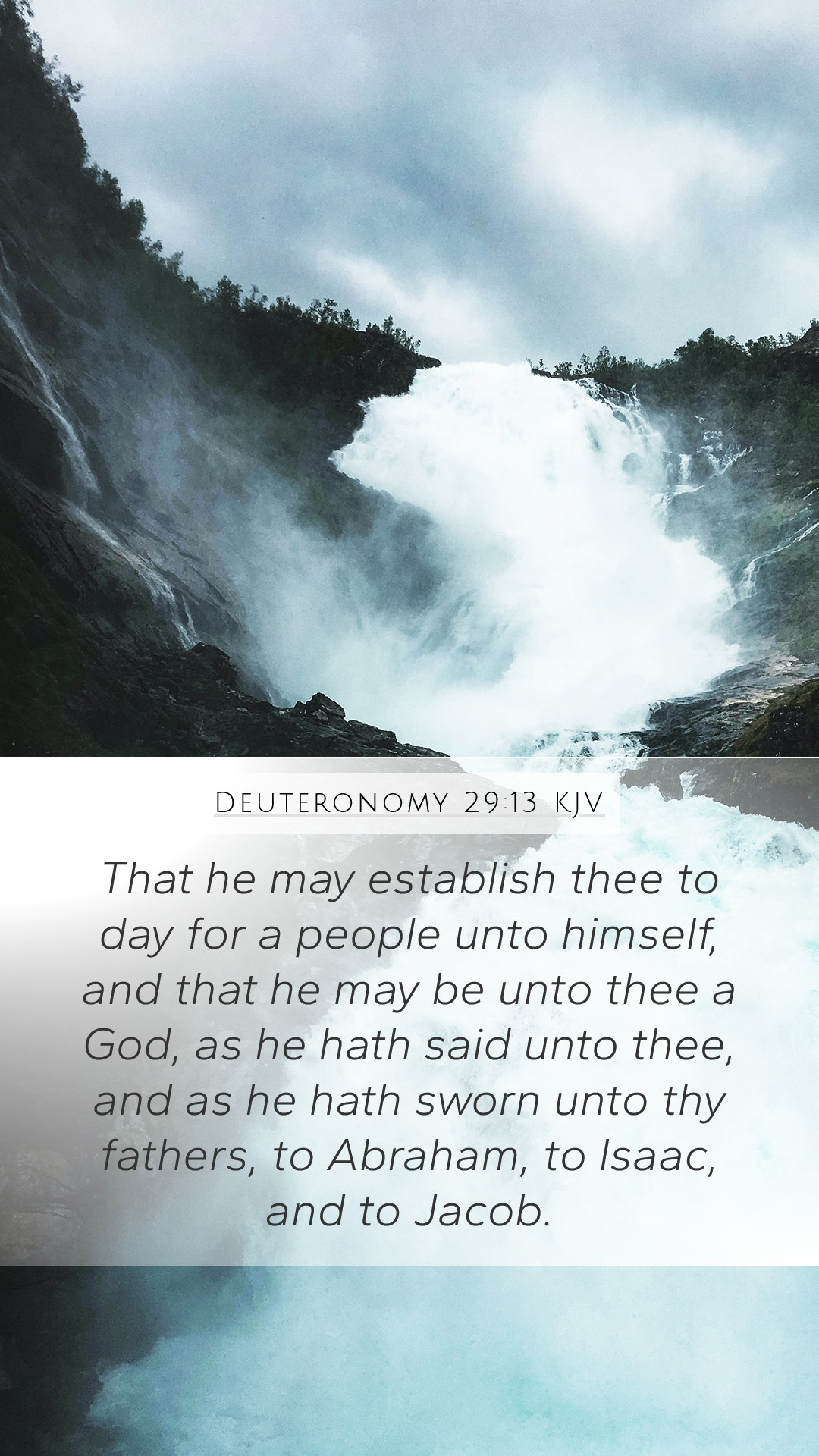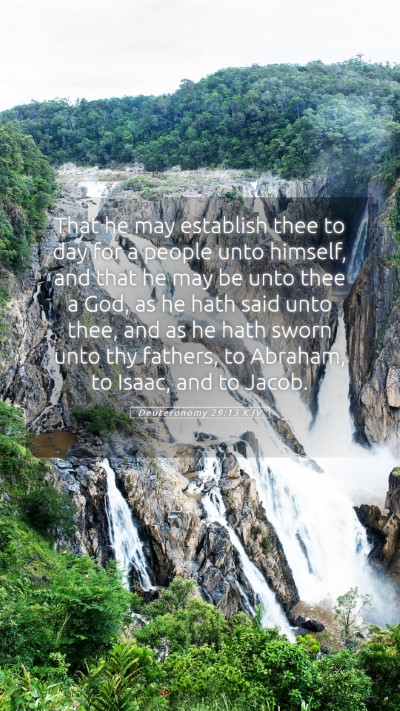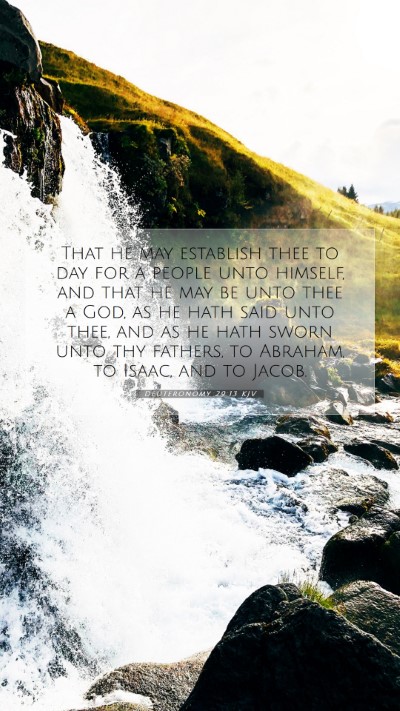Understanding Deuteronomy 29:13
Deuteronomy 29:13 states: "That he may establish you today for a people unto himself, and that he may be unto you a God, as he hath said unto thee, and as he hath sworn unto thy fathers, to Abraham, to Isaac, and to Jacob."
Bible Verse Meaning
This verse emphasizes the covenant relationship between God and His people, focusing on God's promise to establish Israel as His chosen nation. The verse suggests a direct link between divine commitment and human identity, indicating that their status as God's people is both intentional and rooted in historical promises made to their ancestors.
Bible Verse Interpretations
Various commentaries, including those by Matthew Henry, Albert Barnes, and Adam Clarke, provide insights into this verse's significance.
-
Matthew Henry: He emphasizes God's faithfulness and the continuity of the covenant. He notes that the establishment of the people is a reflection of God's commitment to their forefathers, illustrating the importance of lineage in understanding one's identity in relation to God.
-
Albert Barnes: Barnes highlights the aspect of relationship in the covenant, interpreting "that he may be unto you a God" as God's personal involvement in the life of His people. This suggests not only a promise of protection but also the intimate relationship that God desires with those He chooses.
-
Adam Clarke: Clarke adds a historical perspective, indicating that this assurance was given to encourage Israel as they stood on the brink of entering the Promised Land. The reiteration of God's commitment serves as a reminder of their responsibilities and privileges as God's people.
Scripture Analysis
The analysis of Deuteronomy 29:13 reveals themes of covenant, identity, and divine assurance. It is a critical verse that reflects the historical context of Israel's journey and their relational dynamics with God.
Biblical Exegesis
In biblical exegesis, the focus on the covenant reaffirms the importance of understanding God's promises, particularly in how they connect to both past and future generations. This verse acts as a bridge between the faith of the patriarchs and the current generation of Israelites.
Bible Study Insights
For those involved in bible study groups or online bible study, Deuteronomy 29:13 serves as a poignant reminder of God's unwavering faithfulness. It invites believers to reflect on their own covenant relationship with God and the implications of being part of His chosen people.
Meaning of Bible Verses
Understanding this verse helps in grasping the broader context of biblical history and the overarching narrative of God's desire for a people who are dedicated to Him. It also holds significance in bible study resources, facilitating deeper discussions around God's promises and human responses.
Understanding Scripture
The significance of this verse lies not just in historical context but also in personal application. It challenges believers to consider how they embrace their identity as part of God's people today.
Application of the Verse
For bible study guides and bible study lessons, the practical application of Deuteronomy 29:13 can be a discussion around living as a chosen person in today’s world. How do God's promises shape our identity and actions?
Cross References
- Exodus 6:7: "And I will take you to me for a people, and I will be to you a God..."
- Leviticus 26:12: "And I will walk among you, and will be your God, and ye shall be my people."
- Jeremiah 31:1: "At the same time, saith the LORD, will I be the God of all the families of Israel, and they shall be my people."


